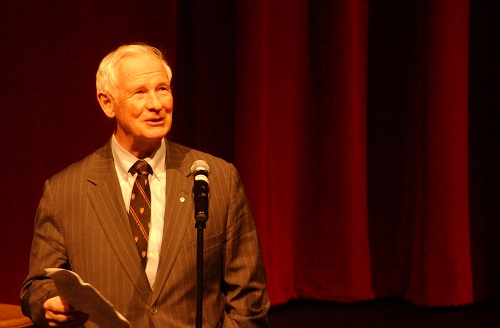Public Inquiry, if necessary, but not necessarily a public inquiry
TORONTO – I love Canada. There is simple underlying ethic to which, as Canadians, we all seem to subscribe: respect the Law; earn your bread; open doors to others; respect the lawful aspirations of fellow citizens; do not pull the ladder up behind you; leave the space you occupy in a better condition than you found it.
I love Canada. Things are not always what they appear to be. For example, in the examination of historical precedent, the issue of compulsion and semantics seem to play a vital role in the conduct of its government and its citizens. There were/are very few “saintly” people in the “rough and tumble” of nation building.
It was always fascinating for me that a string of trading posts along the St. Lawrence River, the north shore of Lake Ontario and the network of other [largely fur trading outposts] could ever be amalgamated into a functioning super state, in such a short period of time, to become the second largest geopolitical entity in the world.
The architects of that were not always “delicate”. Had it not been for their like and their ambition, today’s whiners would be left to the glorification of “navel-gazing”.
There is a respect, if not admiration, for the political elite who fashioned the verbiage and the concept of “Conscription, if necessary, but not necessarily conscription”. Prime Minister Mackenzie King hoped with such sloganeering to avoid a rupture of Canada while supporting the English World War II effort, even against the wishes of Francophone Quebec and the growing numbers of “European Expats”. I did not like him… so what?
I think the Rt. David Johnston fits the Mackenzie King mold. It would appear “the country” wants a public inquiry into foreign [Chinese] interference in our elections. Heck, even MPs in the House of Commons seemingly voted as much. But hold on, Johnston does not answer to them. He has already said he will conduct hearings; he will not ask for confidential secret documentation attesting to anything.
Why would he? When, for political reasons, Parliament passed the War Measures Act in 1940 designating Italians and others as “enemy aliens”, if someone had troubled themselves to check out the facts first, they might have been severely surprised.
More recently, in the 2011 election, there was documented interference in the federal election from sources in the USA. The resulting investigations scapegoated a couple of “blowhards” (one conveniently an MP) and the issue passed.
Prior to that, following the 2008 election, Prime Minister Harper, who had prorogued Parliament so that Canadians might express themselves, was faced with yet another minority government possibility. The Opposition parties rallied together, struck an agreement to govern and presented themselves as an alternative to then Governor General Michael Jean. What to do?
Simple: create a constitutional crisis by proroguing Parliament the day before convening it – buy time. The Constitution says Her/His Majesty cannot be without her Cabinet; moreover, She/He must go to the MP who can secure majority approval of the government’s agenda to form that government. Jean and Harper went to Johnston, a Constitutionalist, to provide the navigation.
He did. Jean allowed Harper to prorogue a Parliament that had not reconvened. The Opposition parties fragmented and when Parliament reconvened after the Christmas break, Harper was reconfirmed as Prime Minister.
Coincidently, when, later, Jean finished her term, Johnston was appointed Governor General. He is now a “special rapporteur” to yet another Prime Minister.
Plus ca change…




